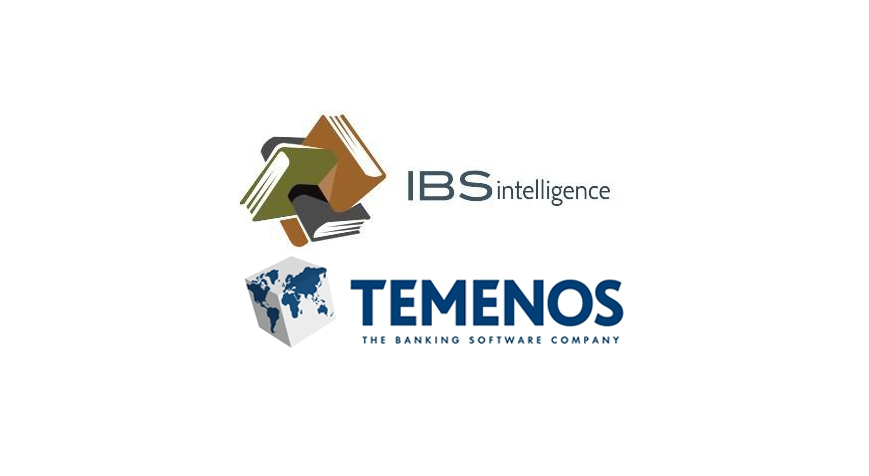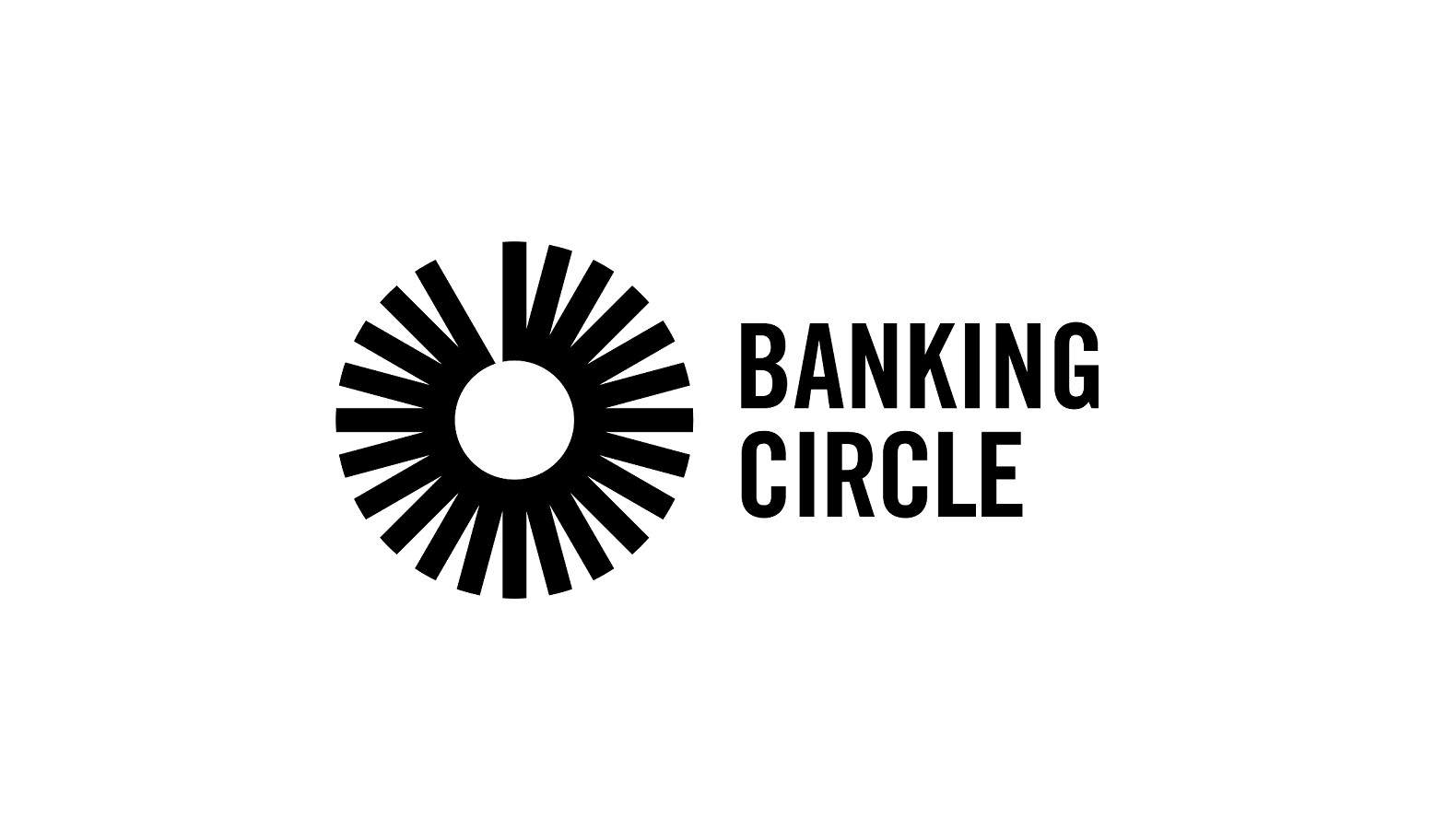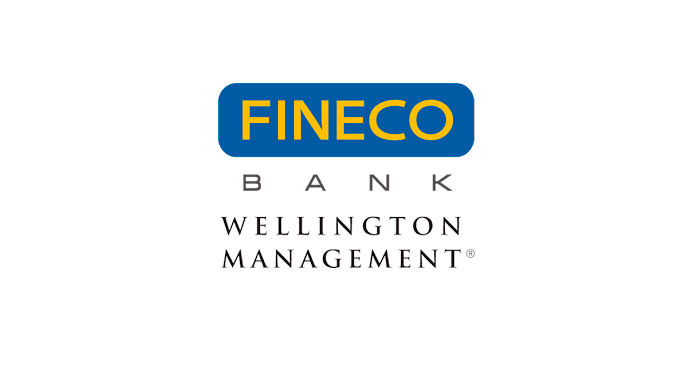Published
- 02:00 am

A concerning number of South African companies are not prepared for the inevitability of a cyberattack despite the significant financial and reputational risks, according to Ryan Mer, Managing Director, eftsure Africa, a Know Your Payee™ (KYP) platform provider.
“Too few senior managers view cybersecurity as a business problem and not just a technology problem. The reality is cybersecurity is very much a business consideration. CEOs and CFOs will eventually face critical questions such as: How much money do we spend on cybersecurity? Do we change key processes? How do we create awareness and change company culture? Do we put security ahead of operational functionality? What is the role of internal processes and staff on data security and integrity?”, he says.
Mer adds that because cybersecurity is a business-wide risk it requires more than isolated activities to be addressed. “This is where the role of a Chief Information Security Officer (CISO) is important. The CISO therefore needs to have technical and security skills and competencies, but equally as important, should understand the finance function, operations of the business, and have the business as well as communication skills to effectively create this span.”
While large corporates are more likely to have the resources to fill the CISO role, businesses below the corporate level may not. In such instances, Mer says an outsourced or CISO-as-a-service offering could add immense value. “Ultimately, and especially in relation to the Protection of Personal Information (POPI) Act, there needs to be a coherent strategy and allocated responsibility in place with respect to cybersecurity, data management, compliance and fraud prevention.”
He adds that in the absence of commonplace and well-developed CISO roles, it is the CFO who should lead the way in addressing cybersecurity concerns, particularly in smaller organisations. “It is potentially disastrous for the finance team to be ignorant of cyber risk. Attackers can target many areas of an organisation, but the dangers are usually measured in financial terms: CFOs cannot ignore cybersecurity simply because it is a complex issue outside their area of expertise.”
In addition to having the skills and oversight necessary to take a broad and long-term view of the potential financial impact of an attack, Mer says the CFO is one of the most natural custodians of data, from collection to its ongoing management. “Attacks will very often target the finance department and its team members directly, and in many instances may even be perpetrated by or assisted by internal team members, in attempts to steal and defraud the business. CFOs need to ensure their own vulnerabilities are both understood, and urgently addressed.”
Related News
- 03:00 am

We are pleased to announce that Path Solutions has won the TOP position in two categories in the IBSI Sales League Table 2021 (IBSI SLT); Islamic - Universal Banking | Core, Data Warehouse & Business Intelligence.
Path Solutions re-affirmed TOP position for twelve consecutive years in the IBSI Islamic Sales League Table 2021 with its industry-leading AAOIFI-certified digital banking suite iMAL. The company has an established track record of product innovation. It is a recognized global leader in financial software solutions for Islamic and conventional financial institutions, and this is further proven by its extensive market reach and continuously growing clientele base.
“Keeping an excellent winning record year after year at the IBSI SLT is a tremendous feat and clearly demonstrates the strength of our Islamic banking platform, our strong focus and deep understanding of the segment’s specificities, driven by a passion and commitment to add value to our clients. We are very proud as well for topping the Data Warehouse & Business Intelligence category highlighting clearly the success of our Path Intelligence initiative that we launched a year ago. During the pandemic and recent market volatility, our customer-centric solution has provided our clients with outstanding capabilities to help them transform into becoming analytically data-driven resulting in significant competitive advantages that assisted them to weather the storm”, commented Mohammed Kateeb, the Group Chairman & CEO of Path Solutions.
“Path Solutions strives to remain the first-choice Islamic software partner for financial institutions across the globe, and this year’s fantastic display of wins really reinforces that”, said Robin Amlôt, Managing Editor, IBS Intelligence. “We are especially pleased to see Path Solutions reaping the benefits by leading the power of automation and digitalization to create new Sharia-compliant solutions to address the current needs of the burgeoning Islamic banking segment”.
It is also worth mentioning that Path Solutions positioned as a Competitive Player in the IBSI LeaderBoard - Universal Banking | Core for CY 2020 Deals, featured in the SLT Leadership Club 2021 among category leaders, and ranked second in Islamic Retail Lending category.
Despite the 2nd wave of COVID-19 around the world, IBSI SLT 2021 witnessed consistent participation by vendors as 60 vendors submitted their nominations. Of the 2,073 deals evaluated, the qualified deals of SLT 2021 included 1,046 global deals (SLT 2020: 800+) and over 500 domestic deals (SLT 2020: 900+) across all SLT categories. New SLT categories introduced this year include Conversational Banking, Data Warehouse & Business Intelligence, and InsurTech. In recognition of the fast-growing Islamic banking segment, IBSI SLT is expanding its Islamic SLT which lists the leading suppliers catering to this segment.
The results of IBS Annual Sales League Table 2021 are available here:
Related News
- 02:00 am

New data, released by Yapily the leading Open Banking infrastructure provider to align with the Euros Championship kick-off, reveals the UK, Ireland and Germany outscore the opposition in their adoption of Open Banking in the EU Open Banking league table.
The league table - based on data compiled in 2021 by Yapily through its EU-wide Open Banking API infrastructure and monitoring tools - reveals that while parts of the EU are making positive strides to drive Open Banking adoption and are on track to evolve into Open Finance, others are far behind and missing their scoring opportunity.
Each country has been ranked based on levels of supervision and enforcement by the member state, the presence of Open Banking from a technical standard, regulator interpretation, API standards and bank readiness, and overall product score. Yapily has also shared regulatory insight on where and how each country can positively improve their overall score and ranking.
Ranking: Selected countries from the league table and overall ranking scores against all countries. For the full league table, please see here.
UK (1st place)
- The UK comes out on top as the leading adopter of Open Banking, with it’s clear functionality and widespread mandating of interesting features, such as Bulk Payments and Variable Recurring Payments.
Germany (3rd place)
- Germany ranks high with its strong regulatory supervision and use of the Berlin Group’s API - the most prescriptive after UK Open Banking. However Germany has low guidance around the implementation of Open Banking and needs more support on issuing regulatory guidelines around user journeys and customer authentication.
Italy (joint 7th place)
- Italy has low supervision of Open Banking standards and a premature regulatory response. It does however use the Berlin Group standard, so its API implementation is good, but with some bespoke flows. We could see Italy move up the rankings fast by expanding their single domestic payments and going international.
Denmark (joint 7th place)
- Denmark has good regulatory supervision with some guidance provided around implementation, but with no Open Banking regulator, they can’t currently centralise technical standards. However, with a strong appetite for Open Banking, we expect Denmark will roll out a governing body in the next few years.
Portugal (8th place)
- Open Banking is currently one of the regulator's priorities and the industry has positively supported this development. While it’s heading in the right direction, it’s not quite there yet with its adoption.
Iceland (11th place), Greece (12th place), and Hungary (13th place)
- Languishing at the bottom of the league table, Iceland, Greece, and Hungary don’t currently see Open Banking as a regulatory priority. To support the development of an Open Banking ecosystem, these countries should focus on opening up their markets to fintechs for disruption. Consumers need to get used to modern technologies. So, regulators need to concentrate on lowering barriers to entry.
Open Banking usage has increased significantly since the start of the pandemic. In the UK alone, the OBIE reports that over 3 million consumers now use Open Banking-enabled products and services to improve their financial wellbeing, and more and more countries are harnessing the power of Open Banking to enable better and fairer financial services.
But while the market has a rough idea of who is winning the metaphorical league and who is missing the net, no-one really knows what the actual picture looks like across Europe. Or what this means for the future of Open Banking adoption. Yapily’s EU Open Banking league table provides this comprehensive overview of the market.
Andria Evripidou, Policy Lead at Yapily comments on the data, “The league table demonstrates the positive impact Open Banking adoption has across markets and highlights that the ecosystem as a whole, is on the right path to offering fairer financial services for everyone.
“While some countries have a bigger presence, over the next few years, we will start to see standardised technical requirements that map customer journeys across all countries and better educate industries on Open Banking, as well as the direction of the ecosystem.
“Ultimately, all countries are working towards a common goal - to evolve with Open Finance - and at Yapily, we’re excited to watch the rest of Europe dive forward with this innovation.”
Related News
- 02:00 am

Temenos, the banking software company, has been recognized as the market’s leading software provider with wins in nine categories, up from six categories last year and more than any other company. According to the IBS Intelligence Sales League Table 2021, Temenos is #1 in the digital banking, core banking, retail payments and risk management categories. Temenos also ranked #1 in the new category of Neo Banks and Challenger Banks and also achieved first place in the Islamic Banking category.
Temenos was also named a regional leader in Americas, APAC, and MEA and Europe. With The Temenos Banking Cloud, Explainable AI technology, and Temenos’ deep banking expertise, financial institutions can innovate in minutes and launch new products in days to achieve the industry’s fastest time to value.
Temenos has been ranked the best-selling core banking system for 16 years, and best-selling vendor for digital banking for the fifth consecutive year. For over 27 years, Temenos has helped financial institutions make banking better with technology that sets the bar for the rest of the industry.
In this year’s Sales League Table, Temenos led in nine categories, more than any other technology provider:
- #1 Digital Banking and Channels with Temenos Infinity, signing 106 New Name Deals
- #1 best-selling Core Banking System with Temenos Transact, securing 48 New Named Deals
- #1 best-selling vendor for Neo Banks and Challenger Banks with nearly 2X the deals of the next vendor
- #1 best-selling Payments System – Retail, bringing on 47 New Name Deals
- #1 Risk Management System with 84 New Name Deals – 5X the next placed vendor
- Joint #1 best-selling Islamic Banking – Universal Banking (Core) with 5 New Name Deals
- #1 Regional Leader in the Americas, including signings with BCI, Itaú, and BlueShore Financial
- #1 Regional Leader in MEA, with new clients including Ahli Bank, STCPay, and Al Ain Finance
- #1 Regional Leader in APAC, signing Next Commercial Bank and Virgin Money Australia
- #2 Regional Leader in Europe, signing new clients such as Alpian, FlowBank, and ClearBank
Max Chuard, Chief Executive Officer, Temenos, said: “It’s a great honor to be recognized as the best-selling banking software provider in more categories than anyone else and in the most fiercely contested categories. We’re proud that we’re making banking better for 1.2 billion people every day, with clients such as PayPal launching its Buy Now Pay Later offering giving payment flexibility to consumers, Varo that is serving 180 million underbanked Americans, and Komerční Banka, part of Societe Generale, which selected Temenos to reinforce its leadership in digital banking. Thanks to our relentless investment in innovation, and our proven ability to deliver, we have occupied the top #1 or #2 positions for core banking systems for 22 consecutive years and we are also leading the way in the digital banking and payments categories. This year’s Sales League Table reconfirms Temenos as a global powerhouse, and I would like to thank our community of customers, partners and employees for collaborating with Temenos to revolutionize the industry.”
Robin Amlôt, Managing Editor at IBS Intelligence, said: “The banking industry is facing a challenging environment with stiff competition from FinTechs and Challenger Banks introducing disrupting technologies. Many banks were already transitioning from legacy systems to innovative solutions and COVID-19 further accelerated the speed of digitization. The IBSI Sales League Table is the leading global barometer of supplier performance and during this tough year Temenos maintained its #1 position in highly competitive categories, and increased its leadership across verticals, ranking #1 in more categories than any other vendor.”
Related News
- 01:00 am

B4B Payments, a leading global prepaid payments provider, has selected Banking Circle to provide payments infrastructure for its corporate banking services. Providing prepaid solutions to businesses for more than 15 years, FCA authorised B4B enables organisations of any size to manage expenses, simplify payroll, reimbursements, and offer employee rewards and incentives.
As a leader in FinTech and prepaid business payments and voted the Best Prepaid Product of the Year in 2019, the new partnership with Banking Circle will enable B4B Payments to offer innovative, flexible, and time-saving solutions that streamline and eliminate antiquated finance and accounting processes. Initially Banking Circle will provide virtual IBAN accounts for B4B clients as well as safeguarding services.
Banking Circle Virtual IBAN gives financial institutions such as B4B the ability to issue virtual IBANs in their customers’ names in a way that traditional banks would simply not facilitate due to risk and legacy systems limitations. It is a genuine game-changer for the payments marketplace.
The future vision of the two companies’ collaboration includes utilising Banking Circle’s multi-currency accounts, SEPA and SWIFT transactions solutions and foreign exchange (FX) capabilities. By making payments ‘feel local’, Banking Circle will be removing the need for B4B to have a physical presence in each country in which its customers operate, yet deliver payment costs comparable to those of local banks in the region.
B4B CEO and co-founder, Paul Swinton said, “Banking Circle is changing the dynamics of the global payments ecosystem. It is doing the heavy lifting for businesses like ours by establishing a super-correspondent banking network that will deliver fast and cost-effective solutions for our clients. We therefore see our partnership as integral to our ambitious development plans.”
Anders la Cour, co-founder and Chief Executive Officer of Banking Circle added: “The diverse customer base of B4B requires flexibility and adaptability to serve their needs and we are delighted to be able to provide payments infrastructure to underpin that service. Our mission at Banking Circle is to tackle the legacy of high cost and slow international payments and B4B is another business that has seen the value we can add to their proposition.”
Related News
- 04:00 am

Nordea and Nets have entered into a new agreement, further prolonging their long-term partnership in Finland and Denmark for the provision of state-of-the-art payment services. Nets will continue to deliver card issuing, processing, fraud prevention and detection, dispute handling, digital solutions, and managed services, for Nordea’s card products, including Dankort in Denmark.
“We are pleased that the largest bank in the Nordics has decided to continue and further develop our mutual ambitions in providing engaging payment experiences across the full customer journey. Using Nets’ innovative and best-in-class processing services, we look forward to serving Nordea’s Nordic business for many years to come,” says Torsten Hagen Jørgensen, Chief Executive Officer of Issuer & eSecurity Services at Nets Group.
Nets is an experienced technology expert with the latest know-how and capabilities, providing high engagement and modern, flexible payment solutions that enable banks to meet the demand for safe frictionless, digital banking experiences across Europe and the Nordics.
The long-term agreement has already entered into force.
Related News
- 03:00 am

A new study from Juniper Research has found that spending via buy now pay later services, which are integrated within eCommerce checkout options, including fixed instalment plans and flexible credit accounts, will reach $995 billion in 2026, from $266 billion in 2021. This 274% growth will be fuelled by a greater appetite from users for credit to spread costs, particularly in the wake of the pandemic, which has put extreme pressure on user finances.
The research identified that, while regulations will inevitably place restrictions on services, such as limiting charges or enforcing affordability checks, these changes will not diminish the appeal or growth of the platforms; merely placing them on a more secure footing. The report recommends that vendors focus on improving the transparency and use of credit assessment and reporting now to minimise future disruption.
For more insights, download the free whitepaper: Buy Now Pay Later: The Future of eCommerce whitepaper
Buy Now Pay Later to Become Highly Significant Within eCommerce
The new research, Buy Now Pay Later: Vendor Strategies, Regulatory Frameworks & Market Forecasts 2021-2026 market research, found that, by 2026, buy now pay later services will account for over 24% of global eCommerce transactions for physical goods by value, from just 9% in 2021.
Research co-author Damla Sat explains: ‘As a tool to split the cost for users, buy now pay later is ideally suited for high-cost items, as it enables users to seamlessly split large costs into smaller, more manageable payments. By 2026, these platforms will increasingly become the norm for lower-cost purchases as well; driven by user demand and eCommerce platform integrations.’
Buy Now Pay Later Users to Exceed 1.5 Billion in 2026
The research also found that the global number of buy now pay later users will exceed 1.5 billion in 2026, from 340 million in 2021. In turn, the report recommends that eCommerce merchants must integrate buy now pay later services immediately, or risk losing transactions to other payment platforms which offer preferable payment options.
Whitepaper Download: https://www.juniperresearch.com/whitepapers/buy-now-pay-later-the-future-of-ecommerce
Buy Now Pay Later market research: https://www.juniperresearch.com/researchstore/fintech-payments/buy-now-pay-later-research-report
Related News
- 02:00 am

21Shares, the Swiss pioneering Crypto ETP issuer, today announced that one of the first cryptocurrency exchange traded products (‘ETPs’) will become available to institutional investors in the UK to trade on Aquis Exchange. This arrangement is in partnership with GHCO, a leading market-maker and liquidity provider specialising in ETFs.
The 21Shares Bitcoin ETP (ABTC) will become available on Aquis Exchange, a pan-European MTF business based in London and Paris which offers trading in some of the biggest and most liquid stocks across 15 European markets. The ETP will be centrally cleared (CCP) and is engineered like an ETF. ETPs trade on exchanges in a similar manner to a listed stock and institutional investors in the UK will get exposure to Bitcoin via a regulated framework and structure which they are already accustomed to.
The ETP has been designed to provide institutional UK investors with secure and cost-effective exposure to Bitcoin without the associated Bitcoin custody and security challenges. One unit of 21Shares Bitcoin ETP represents exposure to roughly 0.00035 Bitcoin entitlement.
GHCO, an Authorised Participant (AP) for the 21Shares product, will act as the liquidity provider for the Bitcoin ETP, meaning that institutional investors will have access to ample liquidity as easily as the underlying asset. GHCO has been actively trading ETFs and recently started quoting crypto ETPs. It has an unrivalled track record in quoting the tightest spreads, a key demand for institutional investors.
21Shares is the largest cryptocurrency ETP issuer in the world, with over $1.5bn in AUM across 14 ETPs available on several European stock exchanges. The UK launch follows over two years of successful testing and launching of cryptocurrency ETPs by 21Shares for institutional investors in Germany, Switzerland, France, Austria and the Netherlands.
21Shares and Aquis Exchange plan to cooperate on bringing more of 21Shares’ suite of institutional cryptocurrency products to institutional investors in the UK, including ETPs in other prominent cryptocurrencies such as Ethereum, Ripple, Tezos, Polkadot, Cardano and Stellar.
Hany Rashwan, CEO of 21Shares said: “This is the right time to bring our successful crypto ETP to the institutional UK market. Our strong track record and existing institutional reach across continental Europe means that investors can confidently gain exposure to Bitcoin via a liquid and conventional investment product.”
Dan Izzo, CEO of GHCO, added: “ETPs are a key development for investing in crypto assets as it matures as an asset class. We expect more demand for this reliable, easily-accessible infrastructure with deep pools of liquidity – liquidity that we are happy to facilitate.”
Alasdair Haynes, CEO of Aquis Exchange concluded: “We have been working alongside 21Shares on this project as we are keen to respond to institutional demand in the UK for digital assets.”
21Shares Bitcoin ETP will be available on Aquis Exchange for professional investors only. The forthcoming UK launch is expected to take place this summer and follows recent successful debuts on Euronext Paris and Amsterdam on 1st June.
Related News
- 07:00 am

While in the past few years there has been considerable investment and disruption in merchant acquiring, with the emergence of winners such as Stripe and Adyen, the role of the technology providers behind the cardholder side of the payments equation – otherwise known as issuer processors – has been largely overlooked, despite enabling many of the most innovative and valuable fintechs today.
However, that is beginning to change. The intrinsic value of issuer processors is increasingly being reflected by the post-M&A valuations of some of the biggest companies in the space, from SoFi’s $1.2 billion acquisition of Galileo and its recent SPAC merger taking its market cap to $16.9 billion, to SaltPay’s acquisition of Tutuka and its subsequent $700 million fundraise now valuing the company at over $1 billion. This is only further highlighted by retail investor interest in US-based Marqeta’s IPO, demonstrating that the year of the issuer processor has now arrived.
While the market opportunity is huge in the US, with issuers processing $6.7 trillion worth of transactions in 2020, our experience is that this opportunity stretches across the globe and could be almost five times that amount, given the rapid shift to digital payments adoption and increasingly cashless societies post-Covid.”
Related News
- 06:00 am

Wellington Management is one of the largest global asset managers offering investment solutions spanning across the global equity, fixed income, multi-asset and alternatives.
The latest addition to Fineco's investment platform follows a string of recent fund announcements made this year including AXA IM, Candriam and Ninety One.
Paolo Di Grazia, Deputy General Manager, Fineco: "Following the recent news that more than 70% of Fineco clients hold active current accounts on brokerage, we are determined to continue expanding our investment offerings. We are very pleased to have partnered with Wellington Management and to offer our UK customers access to their selection of quality funds through our competitively priced investment platform."
Matthew Knight, Head of UK distribution, Wellington Management: "At Wellington Management, we strive to combine the resources of a large, global asset manager with the boutique feel of an independent, privately held partnership. We look forward to working with Fineco to offer their UK clients our innovative investment solutions."
About FinecoBank
Launched in 2017 in UK, FinecoBank, the multi-currency bank and one of the most important FinTech banks in Europe, has built an integrated business model proposing customers its One-Stop-Solution: it offers from a single account banking, trading and investment services through innovative transactional platforms developed with proprietary technologies. Fineco represents a new way of banking, a smart way to invest money.
Fineco's mission is to simplify customers' lives when dealing with financial services and has developed a very powerful yet user-friendly platform. Learn more about us on finecobank.co.uk.
About Wellington Management
Tracing its history to 1928, Wellington Management is one of the world's largest independent investment management firms, serving as a trusted adviser to over 2,200 clients in more than 60 countries. The firm manages more than US$1 trillion for pensions, endowments and foundations, insurers, family offices, fund sponsors, global wealth managers, and other clients. As a private partnership whose only business is investment management, the firm is able to align its long-term views and interests with those of its clients. The firm offers comprehensive investment management capabilities that span nearly all segments of the global capital markets, including equity, fixed income, multi-asset, and alternative strategies. With more than 800 investment professionals located in offices around the world, Wellington pairs deep multi-disciplinary research resources with independent investment teams operating in an entrepreneurial boutique" environment. For more information, please visit www.wellingtonfunds.com.









